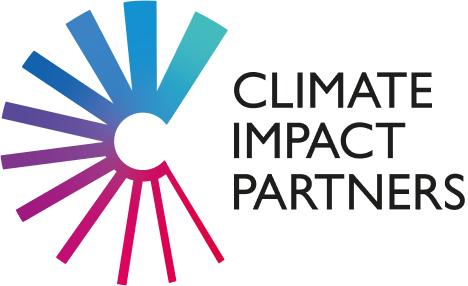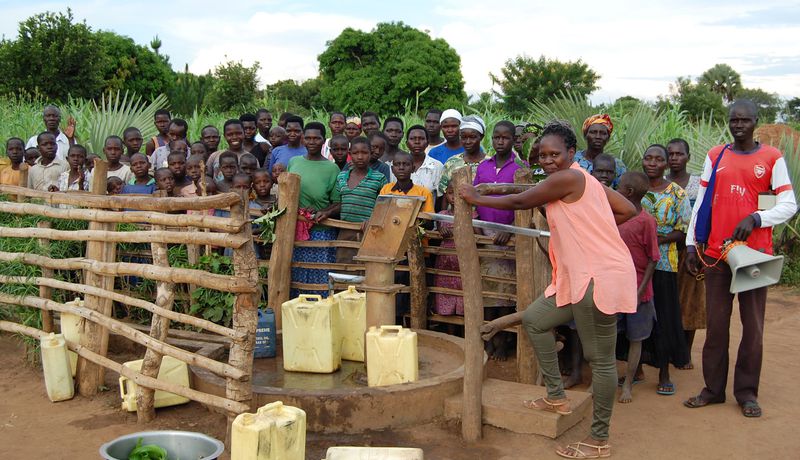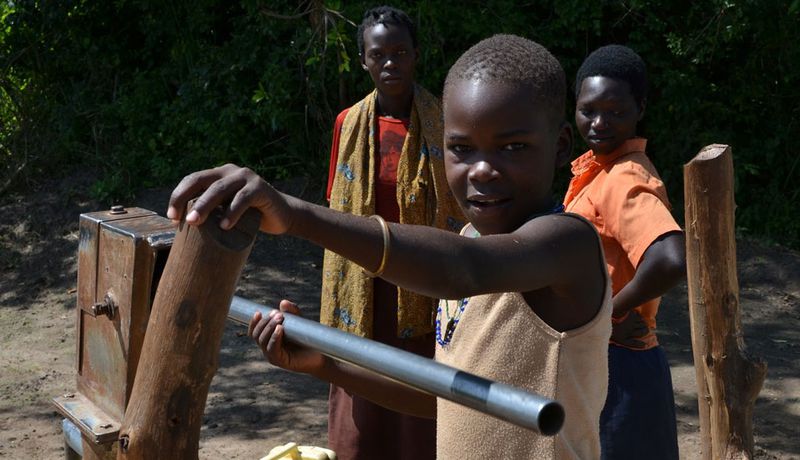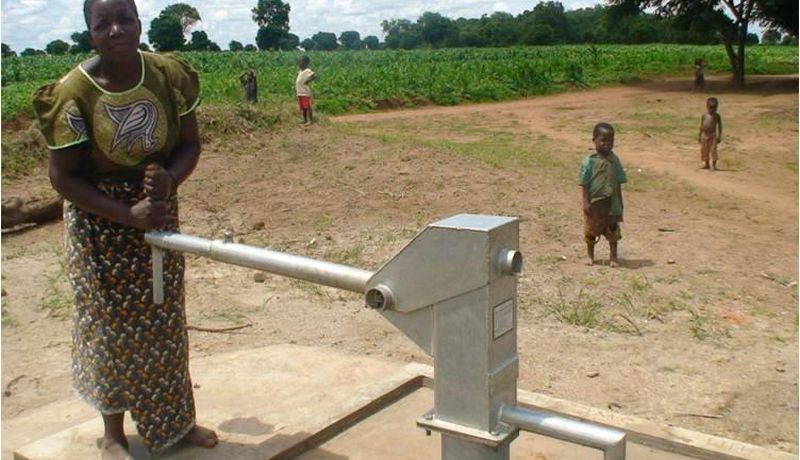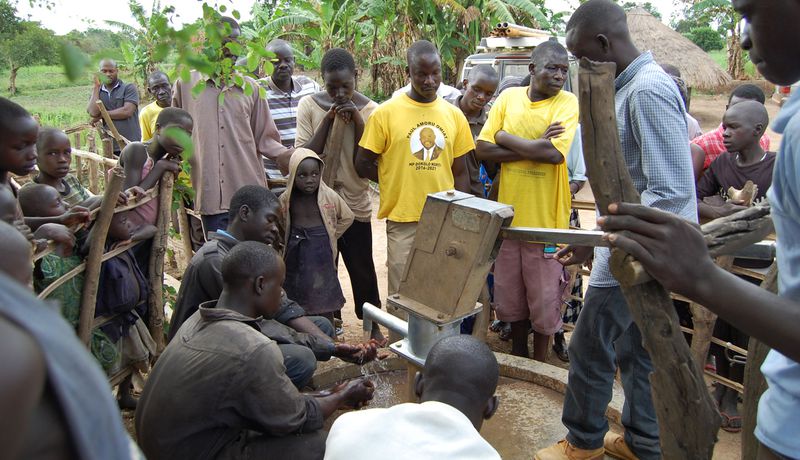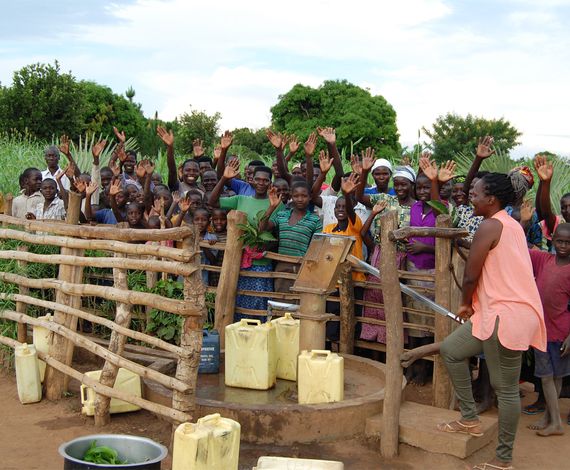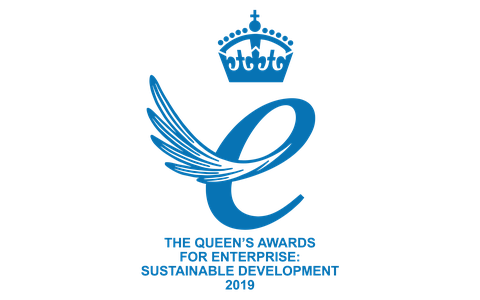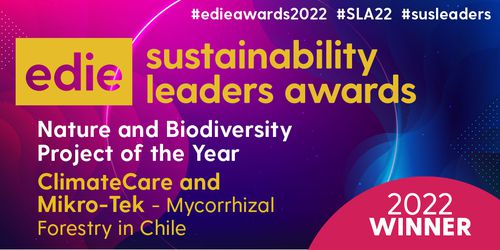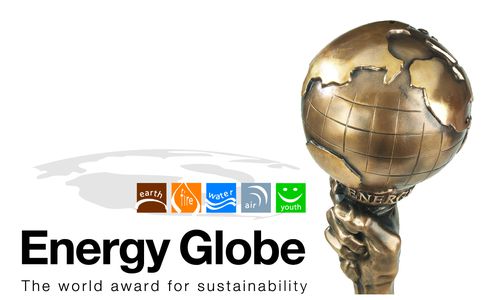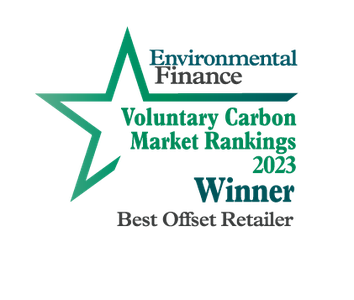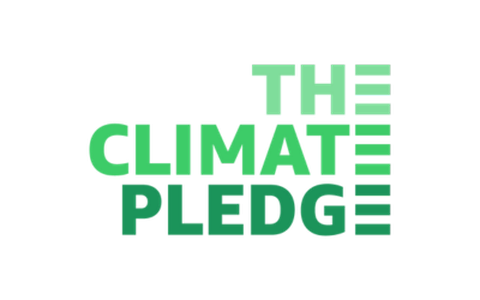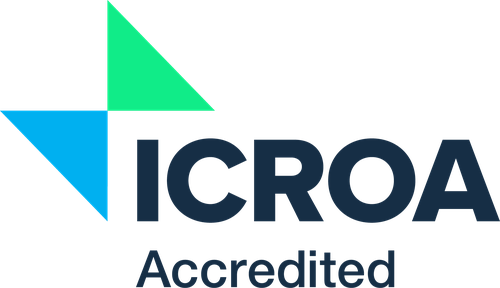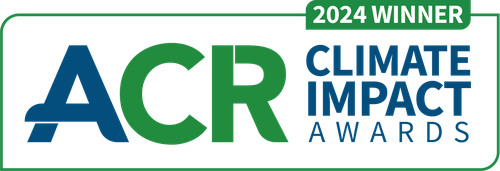This Gold Standard project, based primarily in Uganda, Malawi, Rwanda and Eritrea provides clean drinking water to small rural communities by repairing and drilling new boreholes.
Boreholes can be used as water wells by installing a vertical pipe casing and well screen, which allows water to be extracted from the ground, even during dry seasons.
By providing clean water, communities no longer need to purify water through boiling. This alleviates pressure on local forests – the predominant source of firewood – and reduces greenhouse gas (GHG) emissions.
360-degree Video Tour
Experience an immersive 360-degree virtual tour of this clean water project in East Africa.
Two billion people worldwide do not have access to safe drinking water. | UNICEF
Sustainable Development Goals: In addition to delivering emissions reductions to help take urgent action to combat climate change (SDG 13), the project delivers a number of other sustainable development benefits. The following SDG impacts are currently indicative and subject to change upon further analysis:
- Clean Water and Sanitation: The project provides the infrastructure for clean water supply for communities. In many cases, the boreholes have fallen into disrepair and communities need to travel long distances from their town to collect water or use unsafe water sources. Depending on the number of people in the community, a borehole can provide about one million litres of safe drinking water per year.
- Good Health and Wellbeing: In Uganda, 10 rehabilitated boreholes serve 5,700 people, preventing 100 cases of diarrhoea and six fatalities each year. In 2016, while 29% of people globally did not use safely managed drinking water services, in Uganda the situation is significantly worse with 93% of people not using safely managed drinking water.
- Industry, Innovation and Infrastructure: Locally-appropriate technology is used, such as Afridev hand pumps, maintained by local mechanics trained under the programme to provide a long-term solution.
- Gender Equality: Boreholes greatly reduce the time needed for collection of water and fuel, and the purification of water. This reduces exposure to indoor air pollution, and allows women to focus on other income-generating activities. Without a functioning borehole, women spent and average of 2 hours 50 minutes per day collecting water, which reduced to 47 minutes per day after the borehole in the region was rehabilitated.
Our goal is to deliver 1 billion tonnes of emissions reductions by 2030
600+ projects have been supported by Climate Impact Partners
100+ million tonnes of emissions reduced through carbon finance
Previously we would share a local water source with animals and would suffer stomach illnesses as a result. The community is committed to working together to maintain this safe and clean water source.
Delivering towards the Global Goals

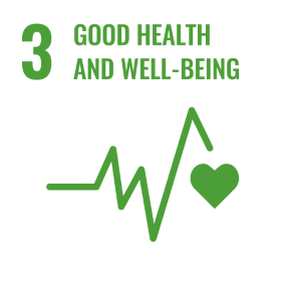
Good Health and Wellbeing
Ensure healthy lives and promote well-being for all at all ages
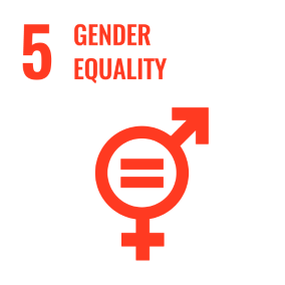
Gender Equality
Achieve gender equality and empower all women and girls
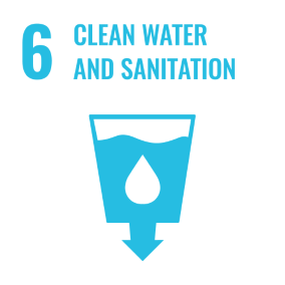
Clean Water and Sanitation
Ensure access to water and sanitation for all
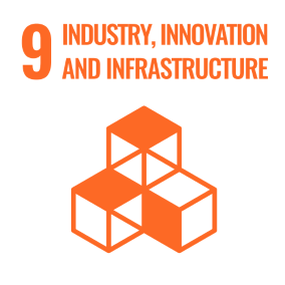
Industry, Innovation and Infrastructure
Build resilient infrastructure, promote sustainable industrialization and foster innovation
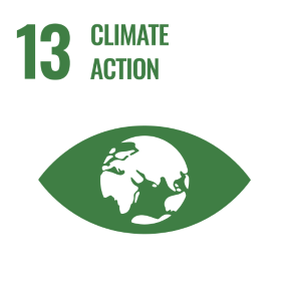
Climate Action
Take urgent action to combat climate change and its impacts


Supporting our projects delivers on multiple UN Sustainable Development Goals (SDGs). You can read more on the Goals below.
Learn more about the global goalsNext Steps
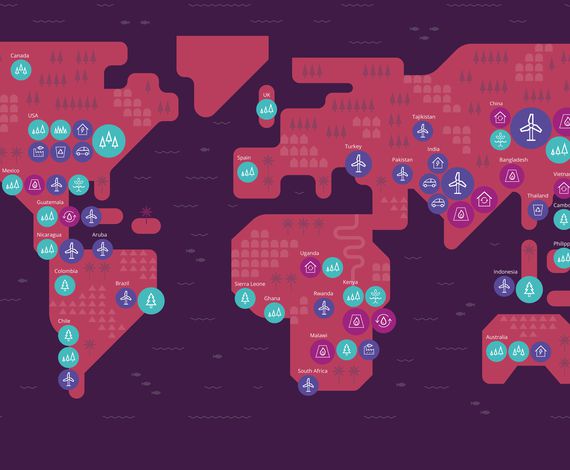
Explore our projects
Explore our range of projects across the globe: nature based solutions, health and livelihoods and sustainable infrastructure.
Explore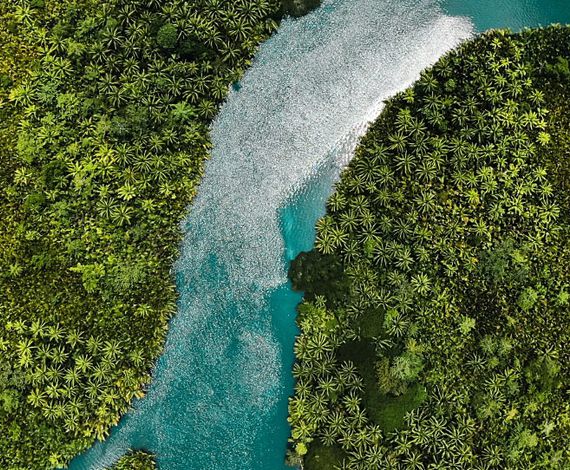
Business Solutions
We are the leading solutions provider for carbon offsetting, net zero, carbon neutrality and carbon finance project development.
Read more